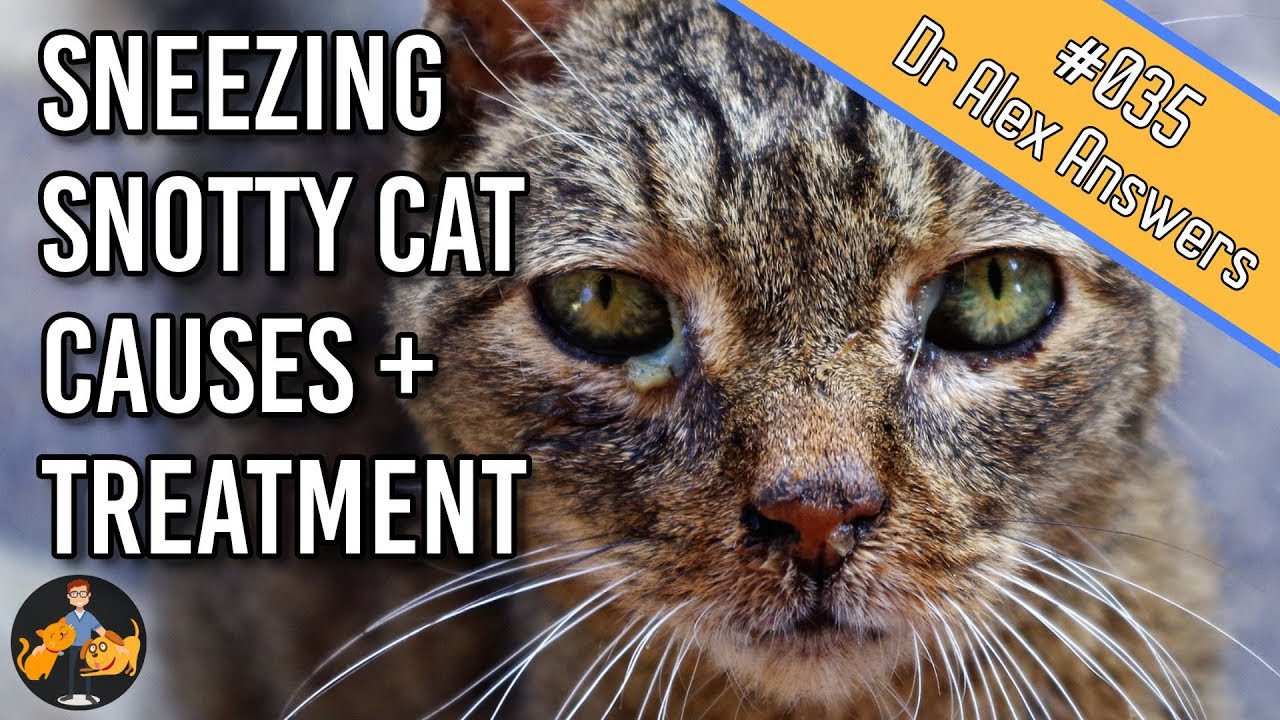Are you tired of constantly sneezing and sniffling whenever you're around cats? Well, get ready to uncover the secrets behind these pesky cat allergies! By diving into this fascinating subject, you'll not only gain a deeper understanding of why your body reacts the way it does, but you'll also discover practical solutions to alleviate your symptoms. Whether you're a cat lover who wants to coexist peacefully with these furry creatures or someone who simply wants relief from those annoying sniffles, unraveling the mysteries of cat allergies is essential for a happier and healthier life. So, let's embark on this journey together as we explore the ins and outs of sniffles and sneezes caused by our feline friends. Get ready to bid farewell to those watery eyes and runny noses as we delve into the captivating world of cat allergies!
Key Takeaways:
- Cat allergies are caused by a reaction to proteins found in a cat's saliva, urine, and dander.
- Allergies to cats can cause symptoms such as sneezing, itchy eyes, and wheezing.
- Regular cleaning and vacuuming can help reduce cat allergens in the home.
- Some people may develop tolerance to cat allergens over time.
- Allergy medications and immunotherapy can provide relief for cat allergy sufferers.
Common Signs of Cat Allergies: What to Look For
If you find yourself sneezing, coughing, or having itchy eyes whenever you're near a cat, you might be experiencing cat allergies. Common signs of cat allergies include:
- Sneezing
- Coughing
- Itchy or watery eyes
- Runny or stuffy nose
- Itchy skin or hives
- Asthma symptoms (such as difficulty breathing or wheezing)
These symptoms occur when your immune system reacts to proteins found in the cat's saliva, urine, or dander (tiny flakes of dead skin). Even if you don't own a cat, you can still experience these symptoms if you come into contact with cats at a friend's house or even in public spaces.
How Cat Allergies Affect Breathing: Understanding the Effects on Your Lungs
If you have cat allergies, it can affect your breathing and make it harder for air to flow freely through your lungs. When you breathe in allergens from cats, such as their dander or saliva proteins, your immune system overreacts and releases chemicals that cause inflammation in your airways.
This inflammation can lead to various respiratory symptoms, including:
- Tightness in the chest
- Coughing and wheezing (a whistling sound when breathing out)
- Shortness of breath
- Chest congestion
Can You Develop a Cat Allergy Even if You've Always Been Around Cats?
Yes, it is possible to develop a cat allergy even if you've always been around cats. Sometimes, people may not show any signs of allergies until they are exposed to a particular allergen repeatedly over time. This means that even if you have grown up with cats and never had any issues before, you can still develop an allergic reaction to them later in life.
The development of allergies can be influenced by various factors, including genetics and changes in your immune system. So, don't be surprised if you suddenly start experiencing symptoms of cat allergies, even if you have been around cats your whole life.
The Science Behind Sneezing and Sniffles in Cat Allergies
When you have cat allergies, sneezing and sniffles are common reactions triggered by your body's immune response. When allergens from cats enter your nose, they can cause the lining of your nasal passages to become irritated. In response to this irritation, your body releases histamines - chemicals that help defend against the allergens.
The release of histamines leads to symptoms like sneezing and a runny or stuffy nose. Sneezing helps expel the irritants from your nose and provide temporary relief from the discomfort caused by the allergens. However, it's important to note that sneezing alone may not completely eliminate the allergic reaction; other symptoms may persist.
Tips for Preventing and Reducing Cat Allergies Without Giving Up Your Furry Friend
If you love cats but suffer from cat allergies, there are steps you can take to prevent or reduce allergic reactions without having to give up your furry friend:
- Keep your home clean: Regularly vacuum carpets and upholstery where allergens may accumulate. Consider using a HEPA filter in your vacuum cleaner to trap allergens more effectively.
- Designate cat-free zones: Keep certain areas of your home, like your bedroom, off-limits to your cat to create an allergen-free space for you to retreat to.
- Wash your hands and clothes: After petting or playing with your cat, wash your hands thoroughly and change into clean clothes to remove any allergens that may have come into contact with you.
- Use air purifiers: Consider using air purifiers with HEPA filters in rooms where you spend a lot of time. These can help remove allergens from the air and improve indoor air quality.
Managing Cat Allergies: Living with a Cat? Here's How to Cope
If you choose to live with a cat despite having allergies, there are additional steps you can take to manage your symptoms:
- Groom your cat regularly: Brushing your cat's fur can help reduce the amount of dander in their coat, which may help minimize allergic reactions.
- Keep cats out of the bedroom: Since we spend a significant amount of time in our bedrooms, keeping cats out can create an allergen-free space for better sleep and reduced symptoms.
- Consider allergy medications: Over-the-counter antihistamines or nasal sprays may provide temporary relief from allergy symptoms. Consult with a healthcare professional for appropriate options.
Treatments for Cat Allergies: Medications and Options Available
If avoiding allergens and implementing preventive measures are not enough, there are several treatment options available for managing cat allergies:
- Allergy medications: Antihistamines, decongestants, and nasal sprays can help alleviate symptoms such as sneezing, itching, and congestion.
- Allergy shots (immunotherapy): This treatment involves receiving regular injections of small amounts of cat allergens over time to desensitize your immune system and reduce allergic reactions.
- Prescription medications: In more severe cases, a healthcare professional may prescribe stronger medications like corticosteroids or leukotriene modifiers to control allergic reactions.
In conclusion, cat allergies can cause sniffles and sneezes in some people. It is important to understand the symptoms and take necessary precautions if you are allergic to cats.
Can cat allergies make you sneeze?
Symptoms of cat allergies can include sneezing, a runny or congested nose, facial pain caused by nasal congestion, coughing, chest tightness, shortness of breath, and wheezing.
Why am I suddenly allergic to my cat?
The reason why some individuals develop allergies later in life, even if they didn't have them before, is not always obvious. However, the immune system is constantly adapting and learning, so any alteration in the internal and external environments of the body has the potential to activate allergies.
How long does it take to get over a cat allergy?
What is the duration of pet allergy symptoms? Symptoms of pet allergies will persist until the animal is permanently removed from the residence. However, many symptoms can continue for several months afterwards since pet dander and fur can linger in a home for several months or even years. Carpets often retain animal dander and fur for extended periods.
How do you stop sneezing from cat allergies?
Nasal lavage is a popular at-home treatment for cat allergy symptoms. It involves using a saline solution to rinse out your nasal passages, which helps alleviate congestion, postnasal drip, and sneezing. Many over-the-counter brands offer this product.
Can I live with a cat if I'm allergic?
Even if someone has allergies, they can still have a pet because there are ways to control and lessen allergies by minimizing exposure to allergens and treating symptoms. Therefore, most individuals are able to have pets while effectively managing their allergies.
What does a mild cat allergy feel like?
If a person is allergic to cats, they may experience symptoms such as sneezing, a runny nose, and itchy, watery eyes within minutes of being around cat dander. Nasal congestion, sinus pressure around the eyes or cheeks, and an itchy throat may also occur.

















